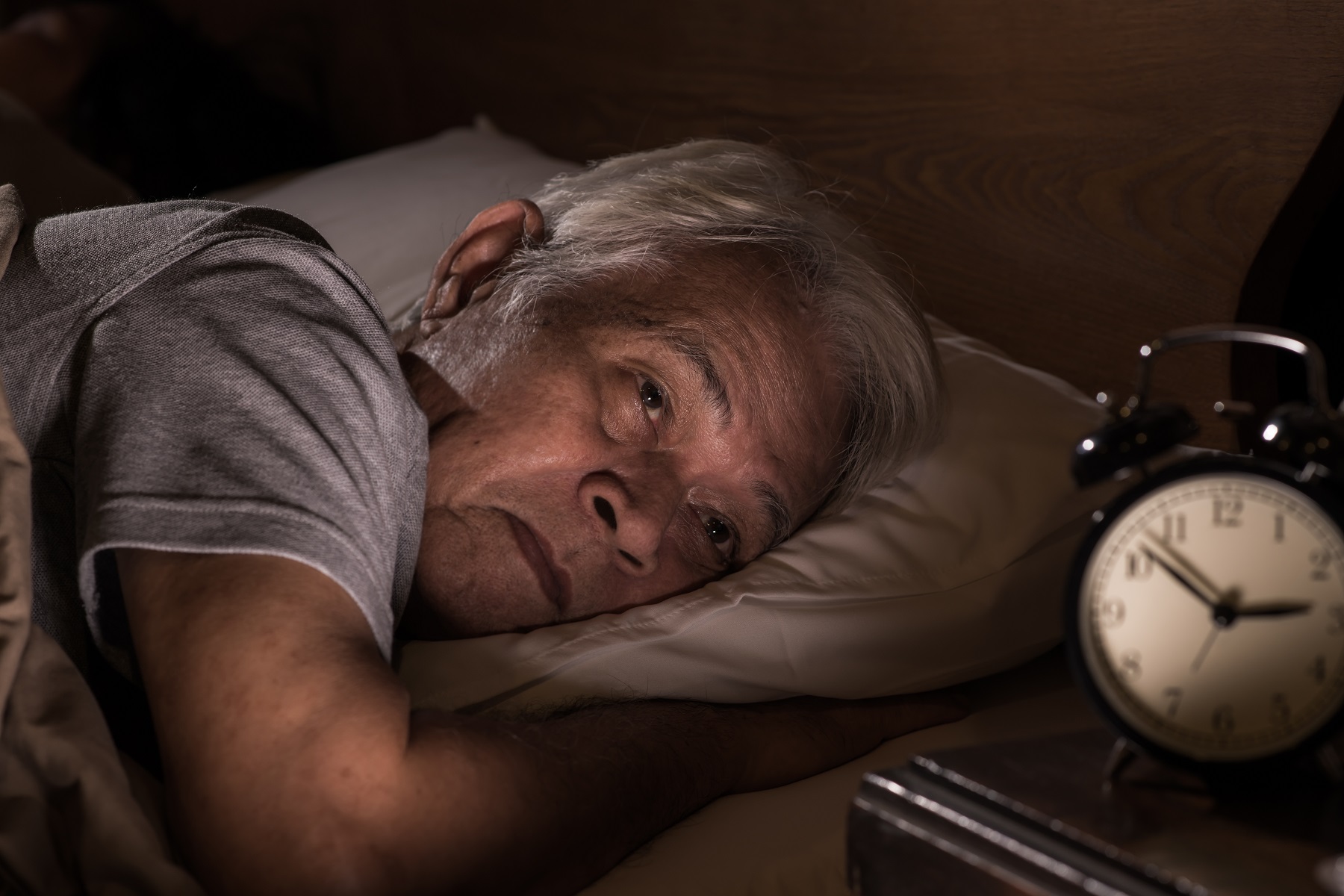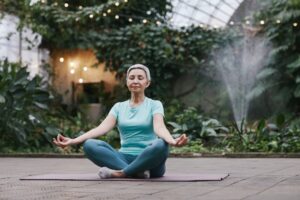What is the best treatment for insomnia in older adults?

Insomnia is defined as the inability to fall asleep in spite of having an opportunity to do so. It’s also defined as the inability to obtain a good quantity and quality of sleep so that one feels refreshed in the morning.
Its characterized by difficulty in initiating and maintaining sleep, lying awake for hours, and frequent daytime naps to make up for tiredness that comes from the sleep deficit.
Again, insomnia is of two types – primary, where-in insomnia happens independent of any other underlying issue; and secondary where there are underlying causes. These are:
- Cardiac and pulmonary conditions such as heart failure and chronic obstructive pulmonary disease COPD affect breathing
- Gastroesophageal reflux disease (GERD) causes heartburn and acid reflux during sleep
- Bone and joint conditions such as arthritis, osteoarthritis, and osteoporosis
- Urinary retention or Urinary incontinence that prompts the person to wake up at night
- Psychological and mood-related conditions such as depression and anxiety
- Neurodegenerative disorders such as Parkinson’s or Alzheimer’s
- The side-effects of medication being taken for one or more conditions
It’s wrongly assumed that insomnia or sleep issues are natural as one gets old. This prevents many elders from taking treatment for the same, even as symptoms and complications continue.
If left untreated, insomnia can lead to fatigue, depression, anxiety, declining quality of life, cognitive decline (decline of mental faculties), and many long-term consequences.
Transient insomnia episodes that last for 5-7 days, and short-term insomnia that last up to 3 weeks, may go away on their own and may not need treatment. But chronic insomnia that lasts longer than 3 weeks must surely be treated by specialist doctors.
Exercise
 Lack of exercise or physical strain in old age can affect metabolism, and indirectly the quality of sleep. It’s good for older adults to exercise 4-5 days a week and this can include brisk walking, light jogging, weight-training, or even badminton if you are fit enough for the same.
Lack of exercise or physical strain in old age can affect metabolism, and indirectly the quality of sleep. It’s good for older adults to exercise 4-5 days a week and this can include brisk walking, light jogging, weight-training, or even badminton if you are fit enough for the same.
Before you start on an exercise program, consult a doctor who will assess your bone health, flexibility, strength in the joints, etc, and recommend the right exercises.
Also, please note, these exercises should be done in the late afternoon or early evening, at least 6 hours before sleep. Exercising later than that can also affect sleep and worsen insomnia.
Meditation
Relaxation exercises such as progressive muscle relaxation, yoga, and meditation can induce better sleep and overcome insomnia to a good extent.

Guided meditation is one where the elder can listen to audio tapes or podcasts where an anchor teaches relaxation techniques, breathing exercises, plays soothing music, etc.
Mindfulness meditation is another technique that is becoming increasingly popular with people of all ages. There is enough information or videos on the internet, as well as smartphone apps, on how to do mindfulness meditation or body-scan meditation.
Concentration meditation is another technique very useful for elders with anxiety issues.
Lifestyle-related
There are several lifestyle changes, lifestyle-related therapies, tips, and tricks that can help elders overcome insomnia.
- Behavioral therapy: Generally a 4-week program, this helps make changes in behaviour that can reduce urinary incontinence, urinary retention, and symptoms of insomnia.
- Cognitive behavioural therapy (CBT): This helps the person overcome negative thoughts that lead to anxiety, depression, and insomnia. A CBT program may also include techniques such as stimulus control and sleep restriction therapy.
- Sleep hygiene: Very useful for anybody but mandatory with elders, especially those with insomnia. This involves sleeping and waking at the same time every day, not consuming caffeinated drinks or alcoholic beverages in the evening, not using the bed for anything other than sex or sleep, and removing distractions such as TV or mobile-phones from the bed-side.
- Avoiding sedatives: It’s natural for friends or family of the elder to recommend sedatives that can put the person to sleep. But this is a dangerous approach as very soon, the person can get dependent on them in order to sleep.
- Diet: Large meals, spicy or oily food must be avoided in the evening or for dinner, as these can worsen symptoms of GERD and trigger insomnia.
- Other techniques: Removing clocks or watches from the bed-side, reading before sleep, skipping naps during the day-time, and not lying in bed awake for long, are other, useful techniques.
Health-check up and Therapy
An elder suffering from insomnia must get a thorough health check-up done to detect any underlying health condition. He/she must also seek psychiatric counseling to identify hidden emotions or unconscious behaviors that are contributing to insomnia.The doctor may further recommend one or more of the following:
- Medication: The doctor may prescribe melatonin, mild sedatives that have less risk of dependency, anti-depressants, and anti-histamines.
- Acupressure: There is some research that shows acupressure can help overcome insomnia symptoms.
- Devices: Cereve Sleep System is a bedside device that is controlled by software. It cools and pumps fluid to a forehead pad that the patient wears all through the night.
- Bright light therapy: In this, the patient is exposed to bright light, for specific durations, in the evening. This delays the onset of sleep and can heal insomnia in some people.
